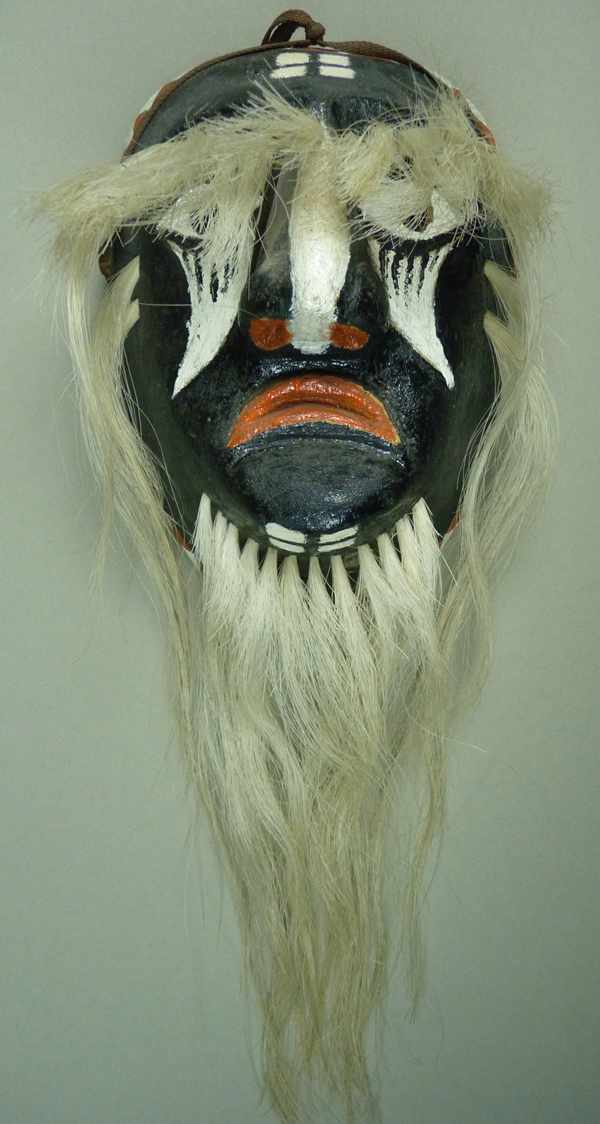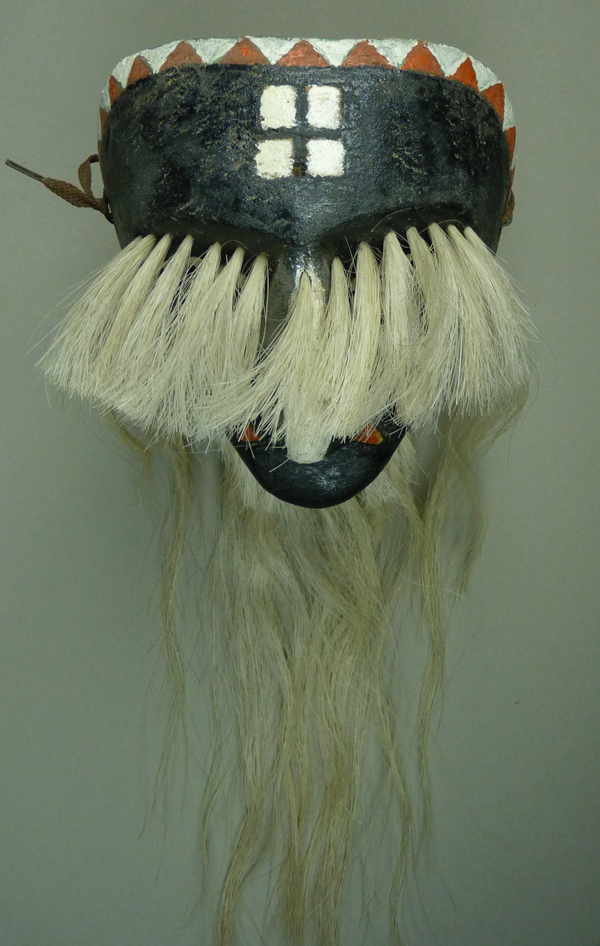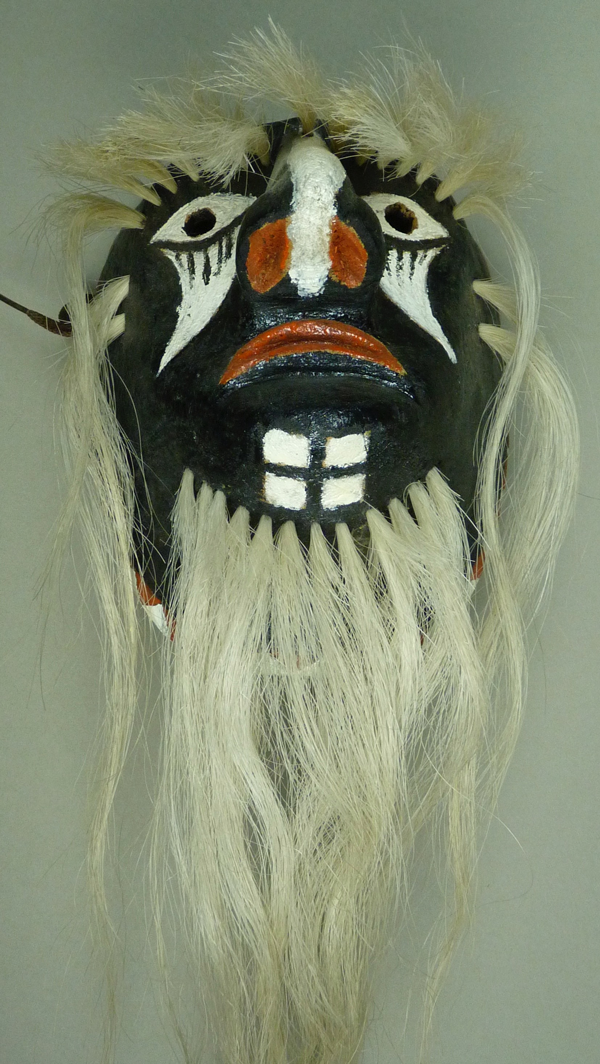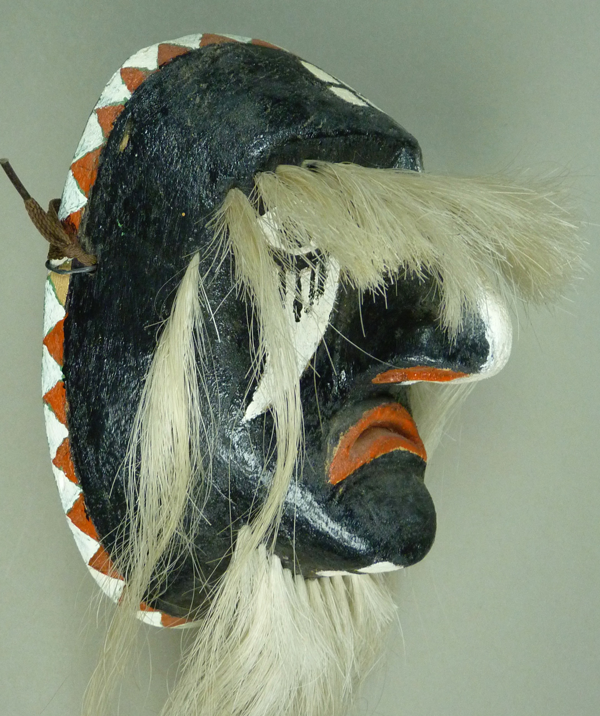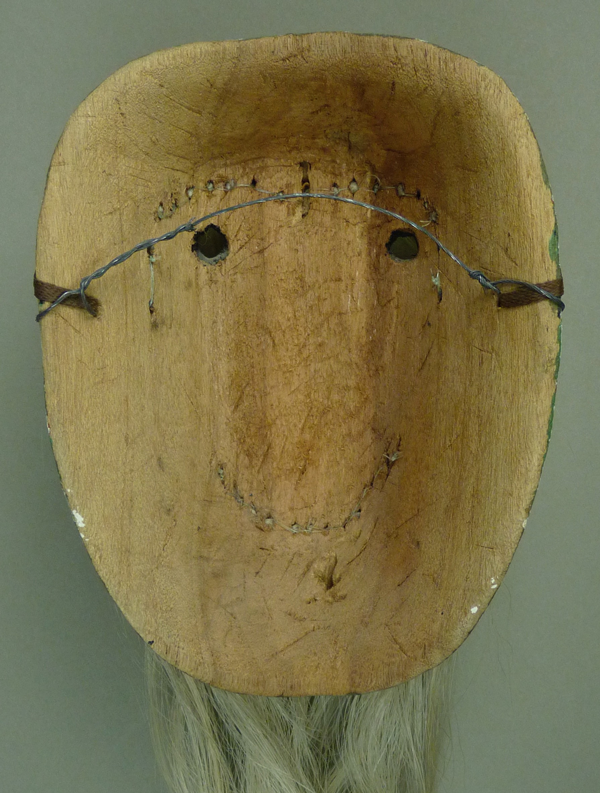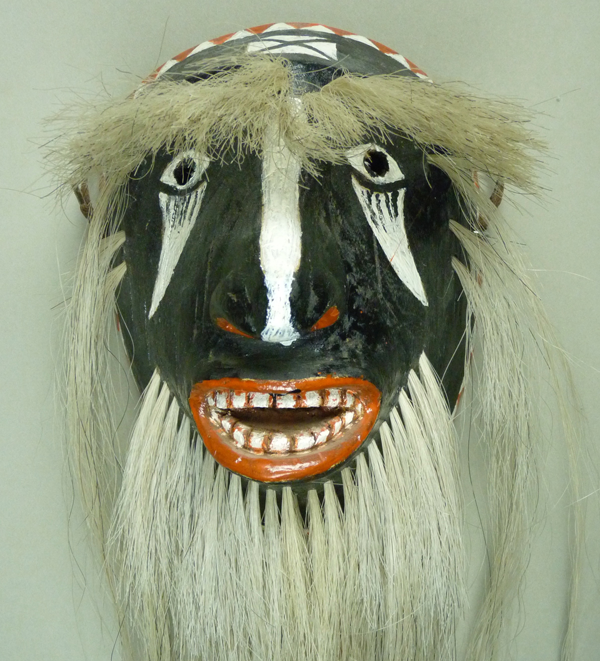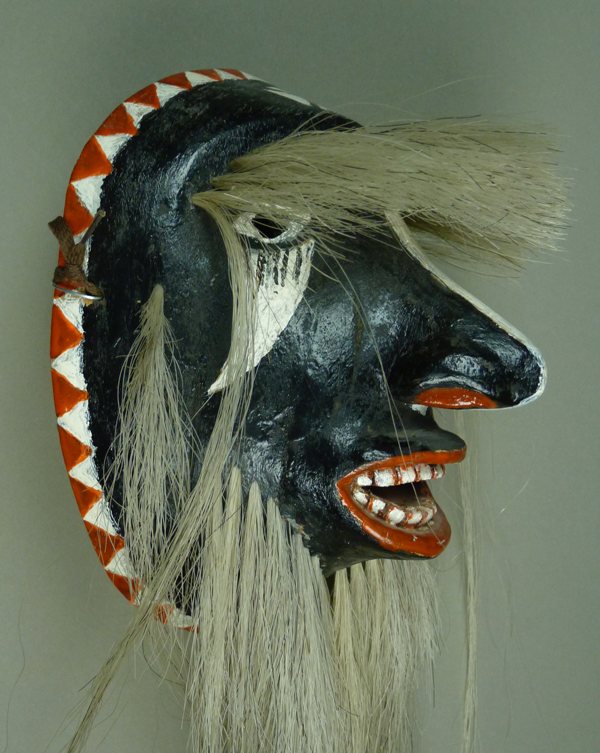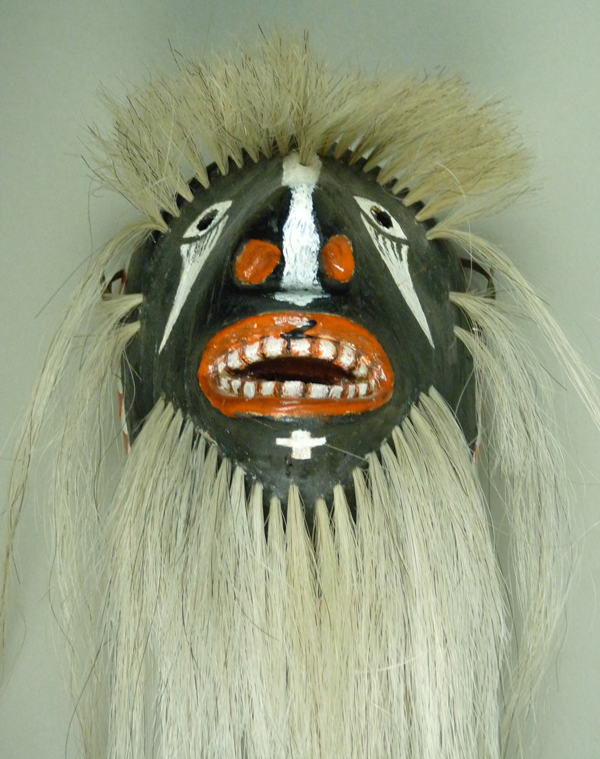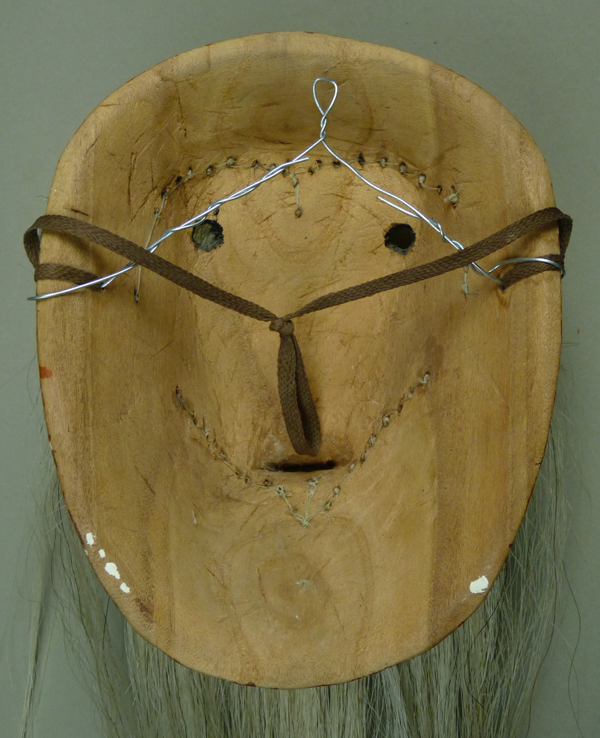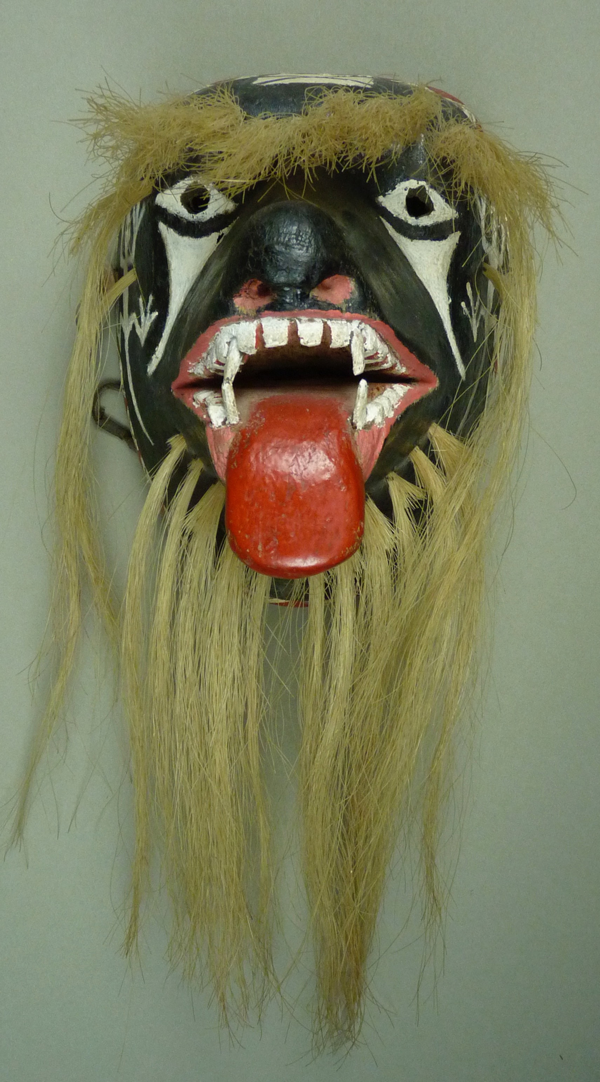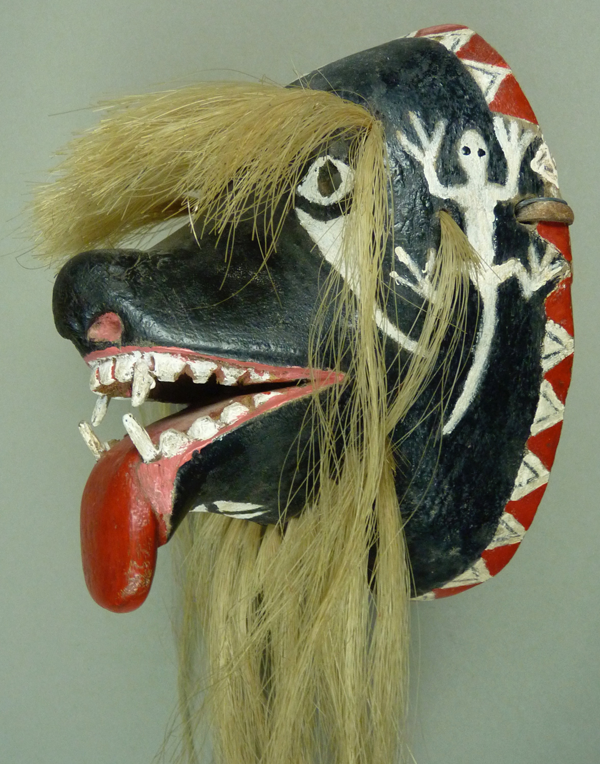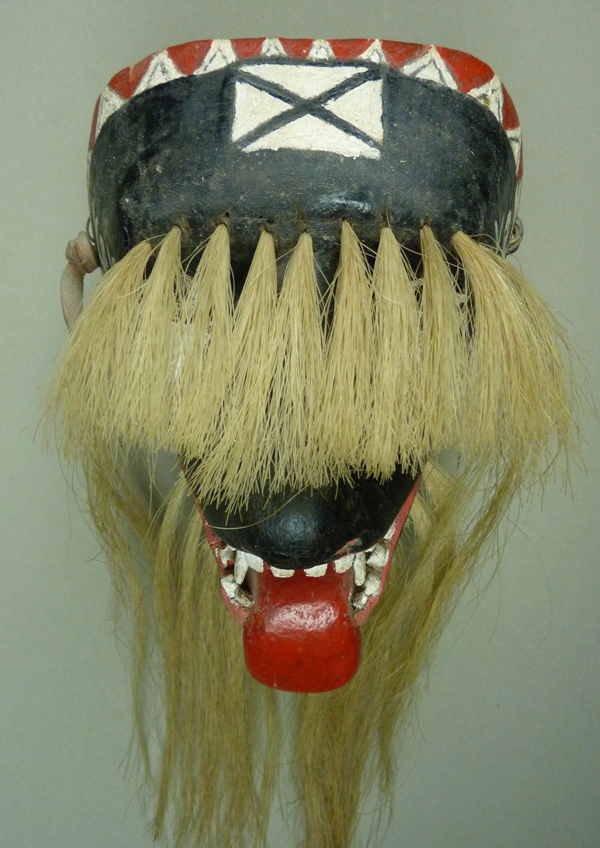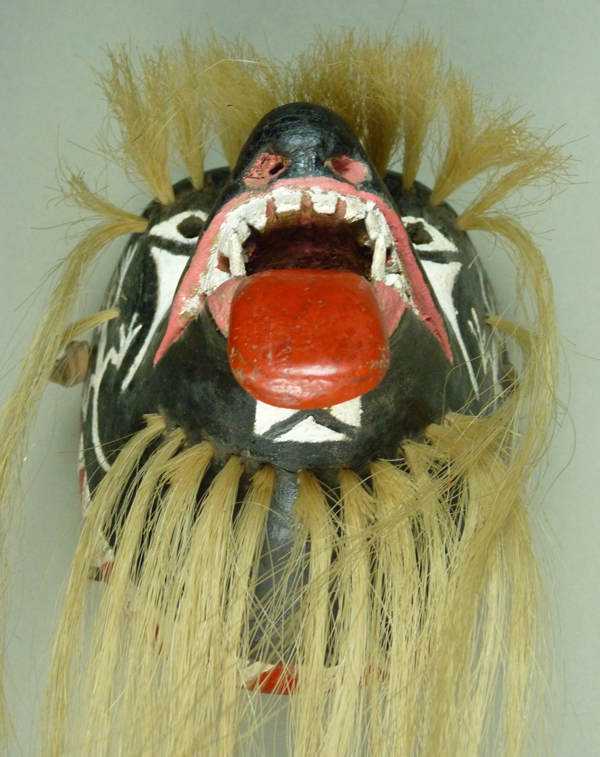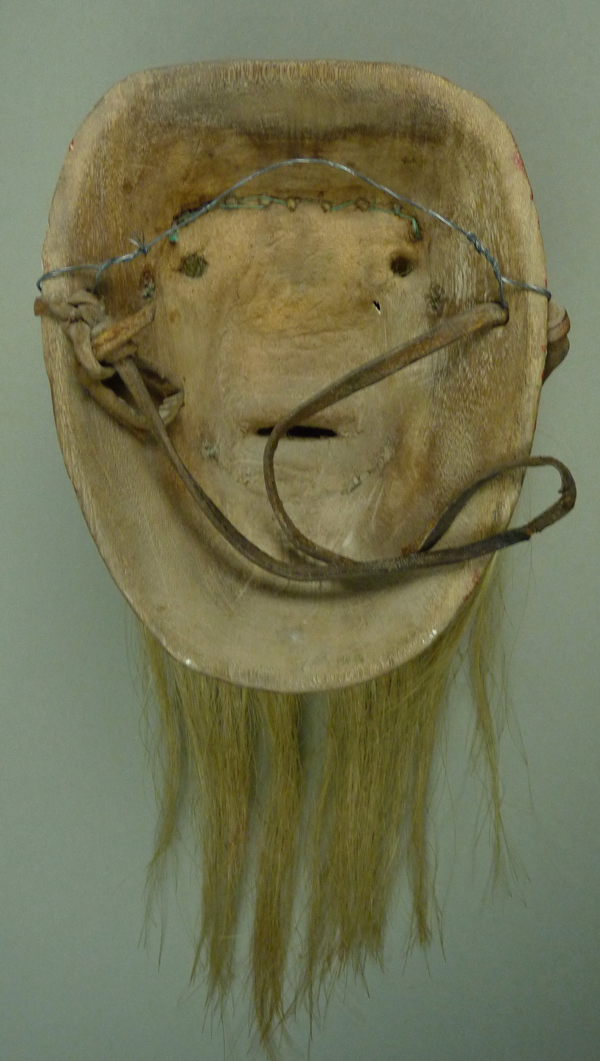Today I want to show you three more Yaqui Pascola masks that were carved by Alejandro Reyes Alegria. All three are from the collection of David West, the owner of Gallery West in Tucson Arizona. David had kindly given me permission to photograph and publish these masks.
The first is another human faced Pascola mask by Alejandro. This one was collected directly from the carver by Richard Felger in 1984.
I particularly like this mask’s frowning mouth.
Both the forehead and the chin cross are in a second and unusual design. Like Alejandro’s other cross, this one can also be described as a white square that has been subdivided by two perpendicular lines. I have only observed the carver to use this cross on the present mask.
The chin cross has the same unusual design as the one on the forehead.
There are the usual vertical black lines painted on the white triangles under the eyes. When present, these lines function as the equivalent of a signature for this artist.
The back demonstrates moderate wear.
And here is the second of these human faced masks, which was collected directly from the carver by Richard Felger in 1980. From the front we see much that is familiar, including Alejandro’s usual color palette, his typical rim design, the forehead cross, the vertical black lines in the white triangles under the eyes, and the very finely crafted hair bundles. This is a superb example of Alejandro’s work.
But as a bonus, when viewed from the side we see that this mask has a spectacular nose and a very well carved mouth. This is a truly handsome mask.
There is the usual nearly hidden cross under the chin, invisible in the side view.
Also as usual the hair is very carefully applied.
The back reveals evidence of mild to moderate wear. It has definitely been danced.
This third mask was collected by Richard Felger in Bacum, Sonora from the dancer, Chico Centella, in about 1970; the carver was unknown. By this time you should have no difficulty recognizing that this is yet another mask by Alejandro Reyes Alegria.
This mask has an impressive tongue.
Here are those lizards again. Only the vertical black lines in the white triangles are missing. Otherwise this is a textbook example of Alejandro’s hand. Note the typical cross of four triangles under the chin.
On the forehead of this mask, and on the chin, we find Alejandro’s usual cross design.
This is one of those masks that offer good air flow to the dancer through the open mouth.
The back of this mask is heavily stained from use, and the mask has what is probably its original rawhide strap.
Next week I will introduce you to another Yaqui carver, Antonio Bacasewa.

